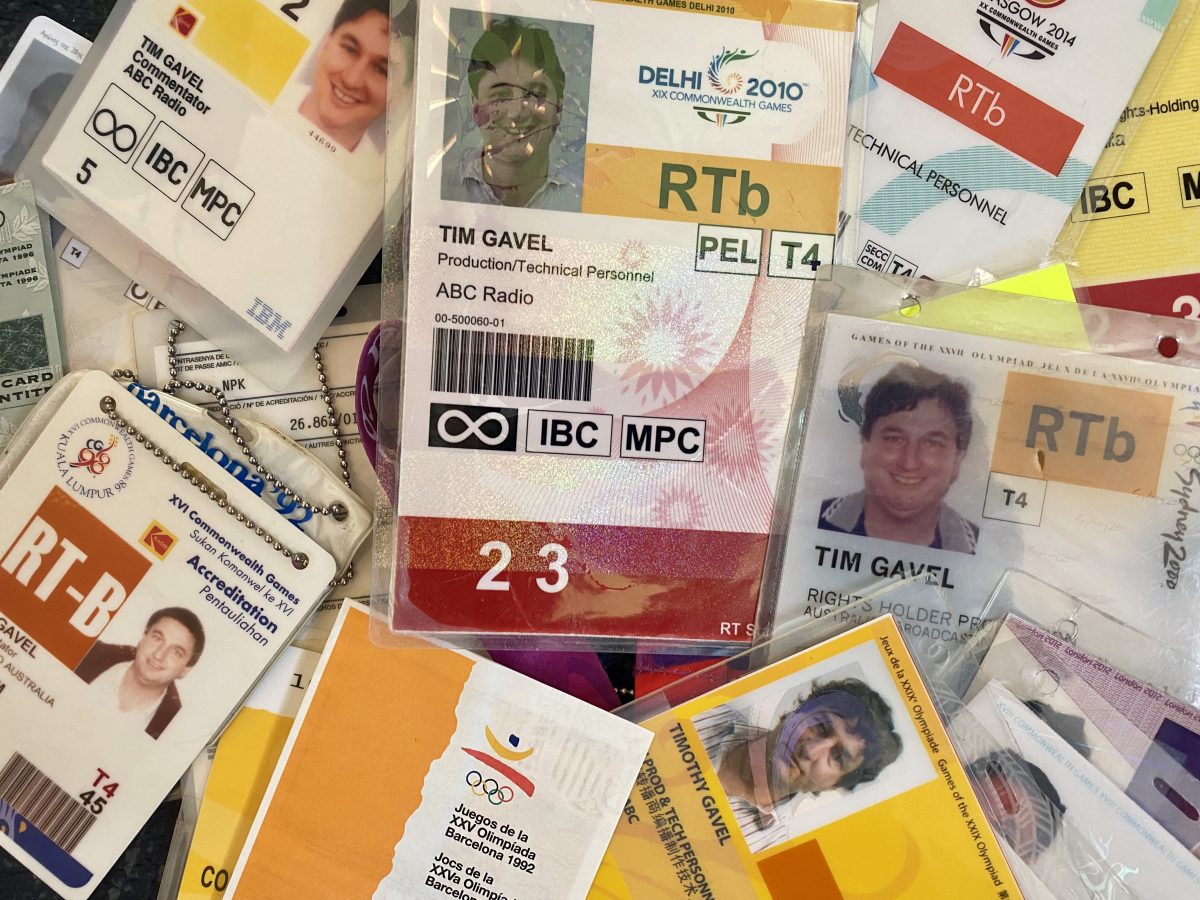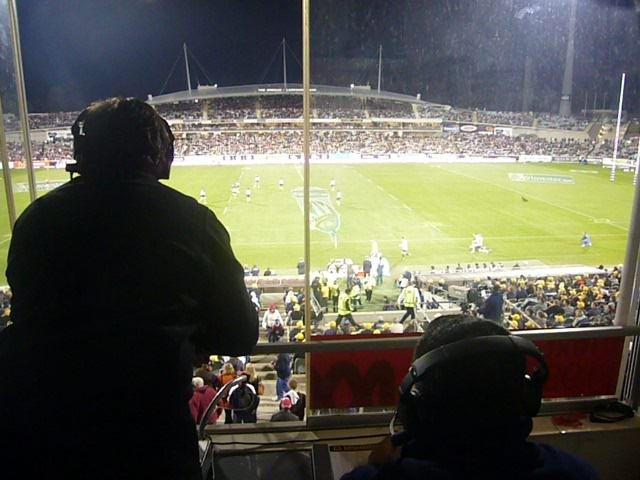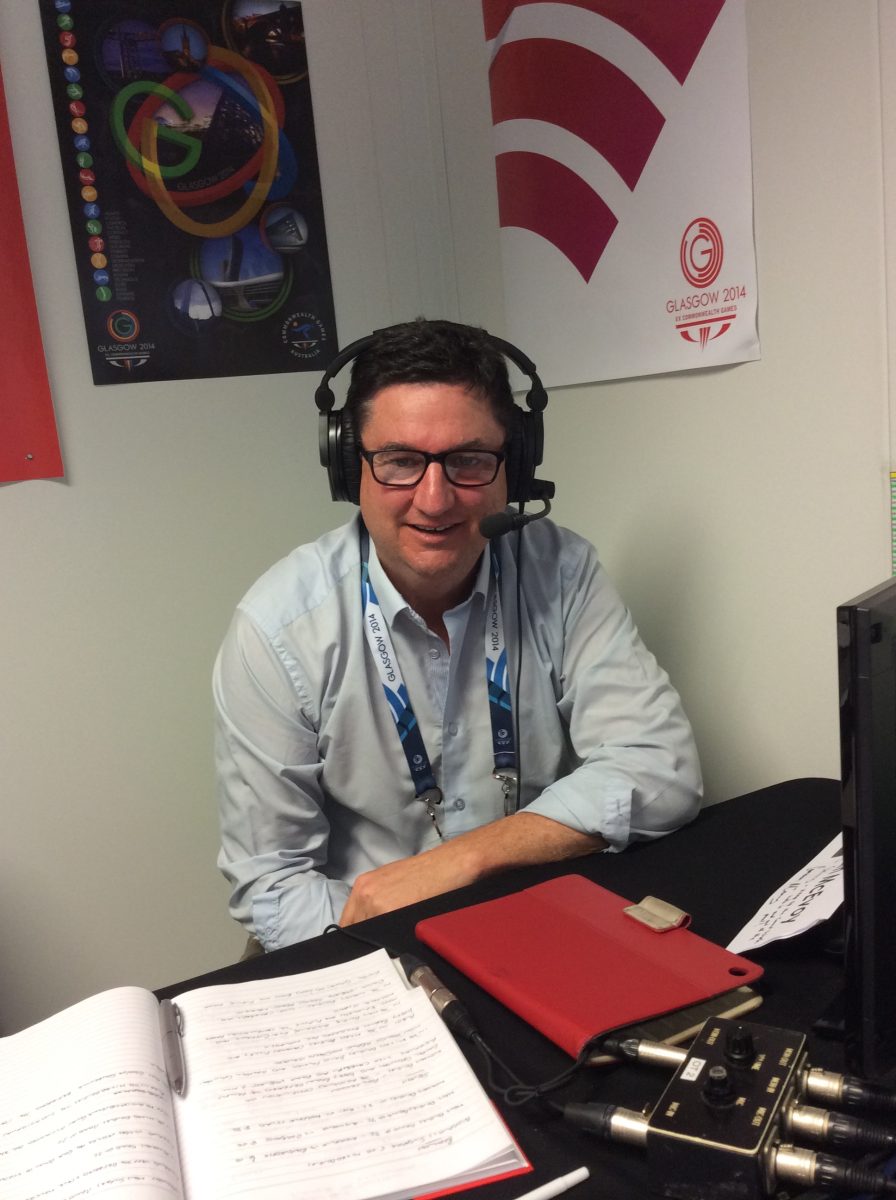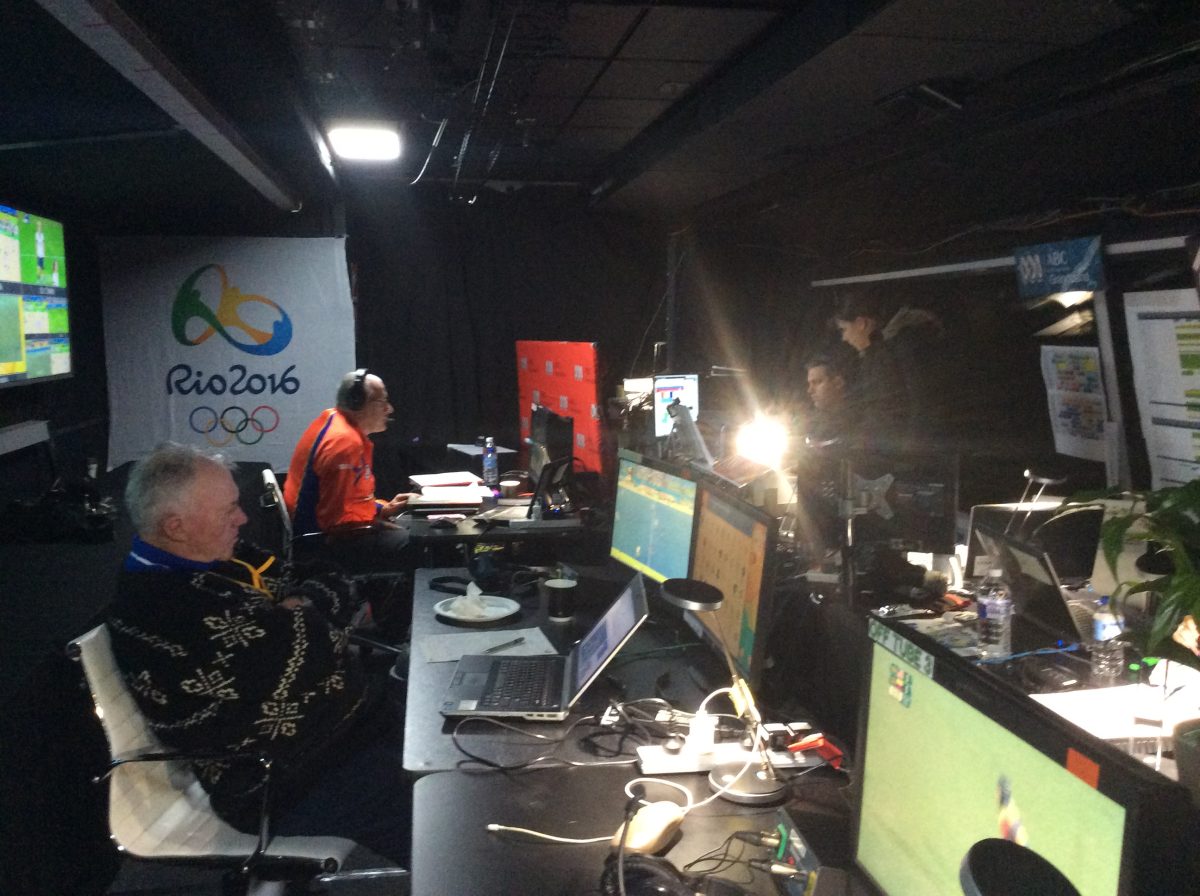
Tim Gavel’s ID cards from seven Olympic Games and seven Commonwealth Games. Photo: Jennifer Andrew.
The days before social media were bliss for sports commentators.
In those days, when commentating on the Olympics or Commonwealth Games from areas as far-flung from Australia as Barcelona in 1992 or Victoria, Canada, in 1994, it was often weeks before returning home.
In those days, no one provided instant feedback, but it was non-stop. There was barely any time to get between venues, let alone enjoy a good night’s sleep.
Every evening required research and practice. There’s no room for mistakes.
I remember returning home days after an Olympic campaign, too exhausted to talk about the experience. It was often weeks later before I felt that I was in a position to process what had gone on. There was a distance between performance as a commentator and public feedback.
Those days of no ‘real-time’ public analysis of commentary performance have gone. Today, analysis comes as the athlete crosses the finish line, and the mental health of the commentator is as fragile as that of the athletes.
The advent of mobile phones and social media has simply added to the pressure on commentators, who are already under the pump with long days in hot conditions and little to no sleep.
The spur-of-the-moment judgment calls on social media these days makes for an uncomfortable bedfellow for commentators.
The character assessments can be brutal, especially if you get it wrong. I’ve seen the careers of sporting commentators visibly diminish through a poor performance at the Olympics.
Most commentators I know put more pressure on themselves than the public could ever place on them, but there is that vulnerable emotional moment straight after a call in which criticism can penetrate.
The attention at the Olympics is rightly on the athletes, and it’s the commentator’s job to support this focus, but in many respects, the expectations placed on commentators are no different from the expectations placed on athletes.
We all know of the countless hours that athletes have put into their chosen sport. On a different level but with a similar commitment, sports commentators spend months of study, backed with years of experience gained through commentating on domestic sports such as football and cricket.

Tim Gavel commentating from the ABC box at GIO Stadium. Photo: Jennifer Andrew.
They work to do the best they can to bring an Olympic or Commonwealth Games event to life for an audience.
Research cramming is akin to studying for an exam. The aim is to soak up as much information as possible so that there is a minimal need to look at notes while commentating.
In the earlier days of my career, the fear of getting something wrong almost crippled me. It was a relief to come through a day unscathed.
There are others, of course, who have a different mindset and attack everything they do with a confidence that sometimes belies their ability or experience. Some did it well, they seem to be ‘naturals’, while others just don’t bother with the self-critique.
I was never comfortable listening to recordings of any of my commentary across seven Olympic Games, beginning with Barcelona in 1992. But when I did, I always found fault in my performance.
I still have that mindset today, and I feel it after every Raiders or Brumbies game that I have called. And to add to this, those on social media are often quick to add their perspective as well.

Tim Gavel at the 2014 Glasgow Commonwealth Games. Photo: Supplied.
In the past, I have commentated on sports that I only get to see at the Olympics. In some cases, it’s a sport I have not initially been assigned so there is little to no research to fall back on.
This happened to me when commentating the Rio Olympics for ABC Radio. ABC had set up its Rio Olympics coverage at Redfern in Sydney, so we were calling events from the television coverage.
Rio-Redfern was hard work.
On one particular day, I had finished my Olympic commentary stint and was walking out the door when I was asked to give a quick update on the Modern Pentathlon.
I am the first to admit I had close to zero knowledge of the sport but had to provide listeners with commentary of Modern Pentathlon and the Australian competitor Chloe Esposito.
As Karen Tighe prepared to cross to me, Chloe was in seventh place heading into the combined shooting and running.
This was at 7:15 am on a Saturday in Sydney. I was emotionally spent having commentated on a variety of sports throughout the night.
By the time Karen had updates to all other commentators and the various sports going on at the time and returned to me, Chloe had moved to third.
For the next 40 minutes or so, I commentated to a national audience on an athlete and a sport I hadn’t really been aware of until 7:15 that morning.
I worked hard at conveying TV images into words that told Chloe’s story to listeners.
As we all know, she crossed the line to win gold. Chloe was delighted, and I was relieved (relieved that it was over).
I had commentated for 40-odd minutes, non-stop, without an expert at my side and without much knowledge.

The ABC Radio commentary booth for the Rio Olympics set up at Redfern, Sydney. Photo: Tim Gavel.
I had a level of fatigue and emotion that exhausted me beyond the ability to sleep. And I’ve avoided listening to that call to this current day.
Commentating at major events such as the Olympics is the most exhilarating experience. I can imagine it has to be similar to that of athletes.
And it’s always balanced with a sense of trepidation.
This is why sports commentary on major events can lift you to the highest of highs, but it has the potential to send you to the lowest of lows. And, I can honestly say, I’ve experienced both in bucket-loads.
As I write this column, many commentators prepare for what will most probably be a career highlight. But they go with the added burden of knowing that if they get anything wrong, instantly, they will know it.














